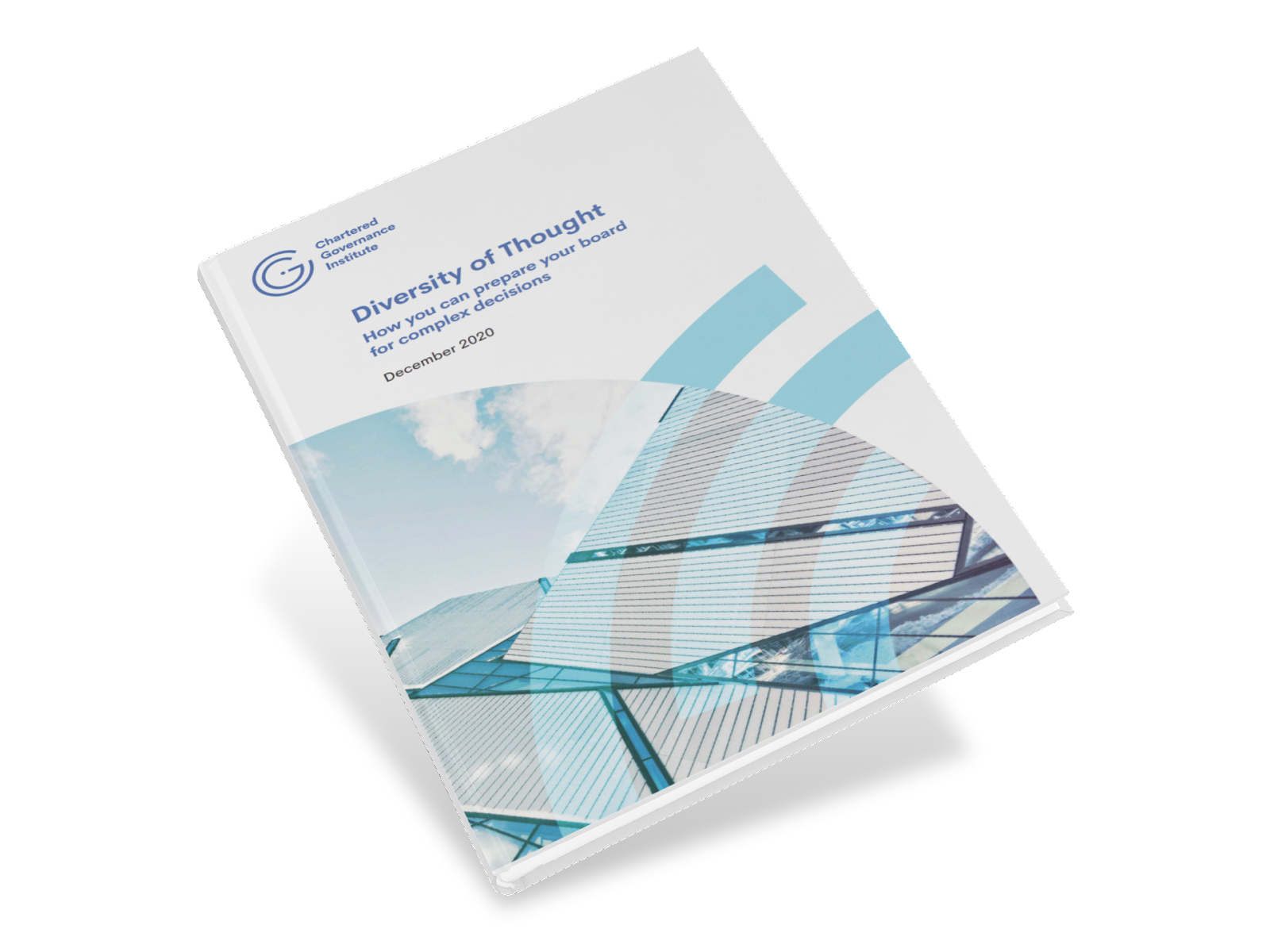Share this
Next story
BoardPro welcomes new board member →
Diversity of thought (DoT) is growing in today’s governance and group decision-making contexts, and not without reason. With the conscious implementation of DoT, there’s a diverse composition of perspectives, which in turn, improves the quality in which boards address complex issues.

But with that said, there are often three factors that hamper the potential usefulness of DoT:
So, how do we address these challenges?

Click the image to download Lloyd Manders latest research
Well, to begin, let’s settle on a definition for DoT. Lloyd Mander MBA CMInstD, leader of the Diversity of Thought Scorecard (DOT Scorecard), proposes two main components that buttress the potential for and realisation of DoT: group composition and group culture.
To have a culturally diverse team is one thing, but how the team cooperates with one another is an entirely separate matter. In fact, these cultural differences, depending on the people and how they contribute, can help foster DoT or hold them back.
Studies have shown that a random, diverse group of problem solvers can routinely outperform experts. Why? Typically, experts rely on their past experiences and knowledge to collectively form a consensus approach to problem-solving, whereas a diverse group is much more likely to think outside the box and use a range of tools and tactics.
Other studies have demonstrated that groups with greater DoT achieve higher performance because of greater cognitive flexibility, leading to alternative solutions and unique insights. This ultimately reduces the risk of unchallenged decision-making, a precursor of a lack of DoT.
So how can your board achieve DoT?
Well, first make sure the board is composed of individuals who differ in their mindsets and world-views, so when tackling complex matters, members can contribute their unique perspectives.
Next, independence of mind and expression need to be fostered. Information such as board meeting papers should be free from the influence of other board members or management. Unsurprisingly, colluding or forming alliances prior to meetings will not do the board any benefit when making decisions as a group.
Therefore, it’s crucial to underscore to members that the board must also have a culture that supports individuals unafraid to share their thoughts. Members should have a genuine voice and feel comfortable and supported enough to share anything on their minds. After all, Psychological safety is essential to fostering DoT.
To measure group potential for and realisation of diverse thinking, The DoT Scorecard is the psychometric tool to utilise. A proprietary algorithm evaluates the responses of group members and the overlap of experiences, perspectives and thought preferences. The algorithm then determines a score for the group to indicate the potential for and realisation of the assessed wide-ranging DoT.
Now more than ever, boards are more routinely evaluating and defining the skills and experience they require to make the best governance decisions to meet the high expectations of regulators, shareholders and stakeholders. Recruitment is no longer based on networks of board members and management. Instead, it is more reliant on advertising the roles and engaging professional board search firms now.
A board is the ultimate decision-making group for its organisation. Members are asked to address and take responsibility for the most complex matters their organisation faces. In making these decisions, boards are ensuring they have a diverse group of members with diverse ways of thinking. Therefore, measuring, managing and reporting on the board’s inherent DoT alongside other board composition metrics is necessary.
In addition, many board member recruitment decisions are involving DoT as a consideration alongside skills, experience and demographics.
To read more on DoT and how your board can realise it, read Lloyd Mander’s “Diversity of Thought: How you can prepare your board for complex decisions” here
These Related Stories


